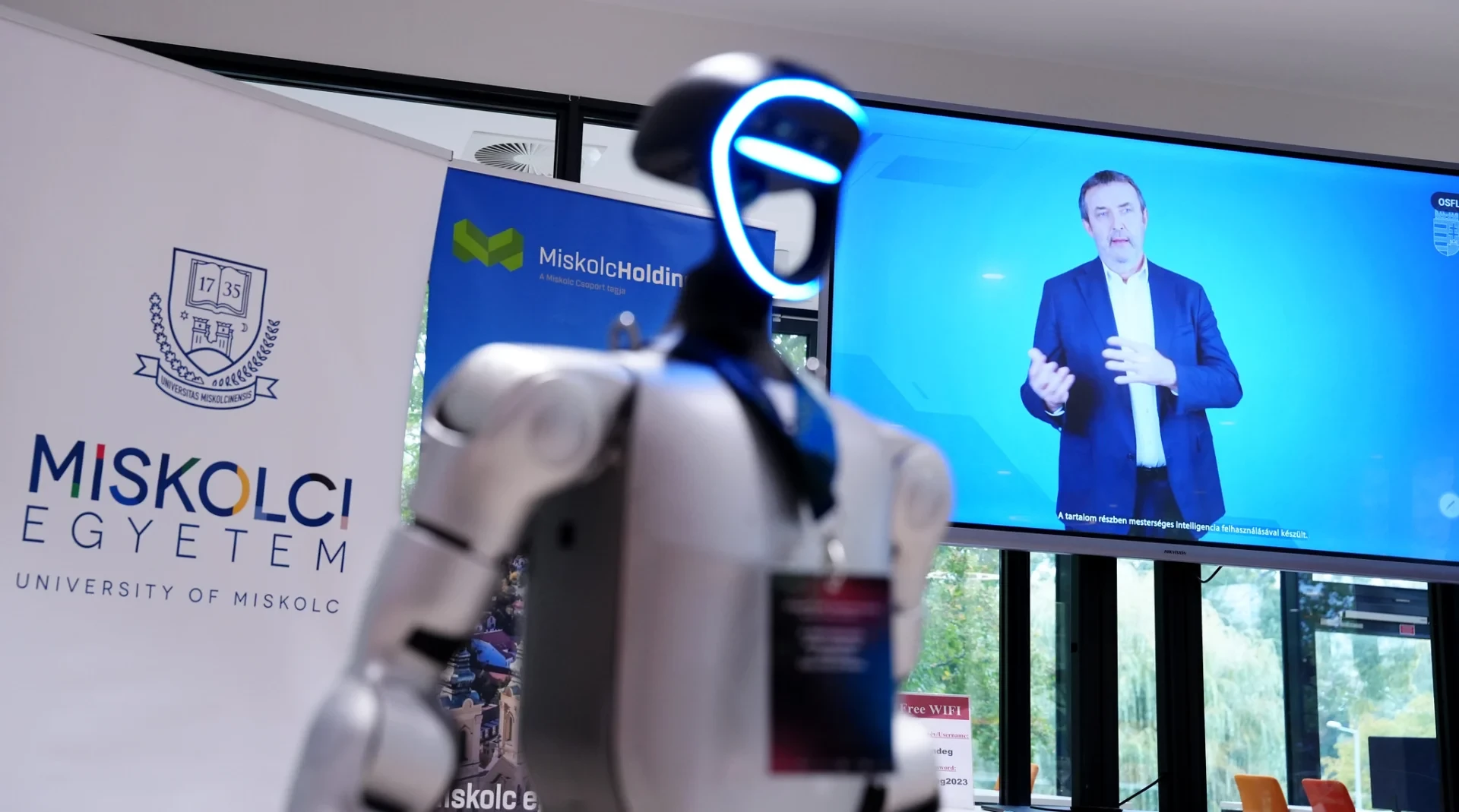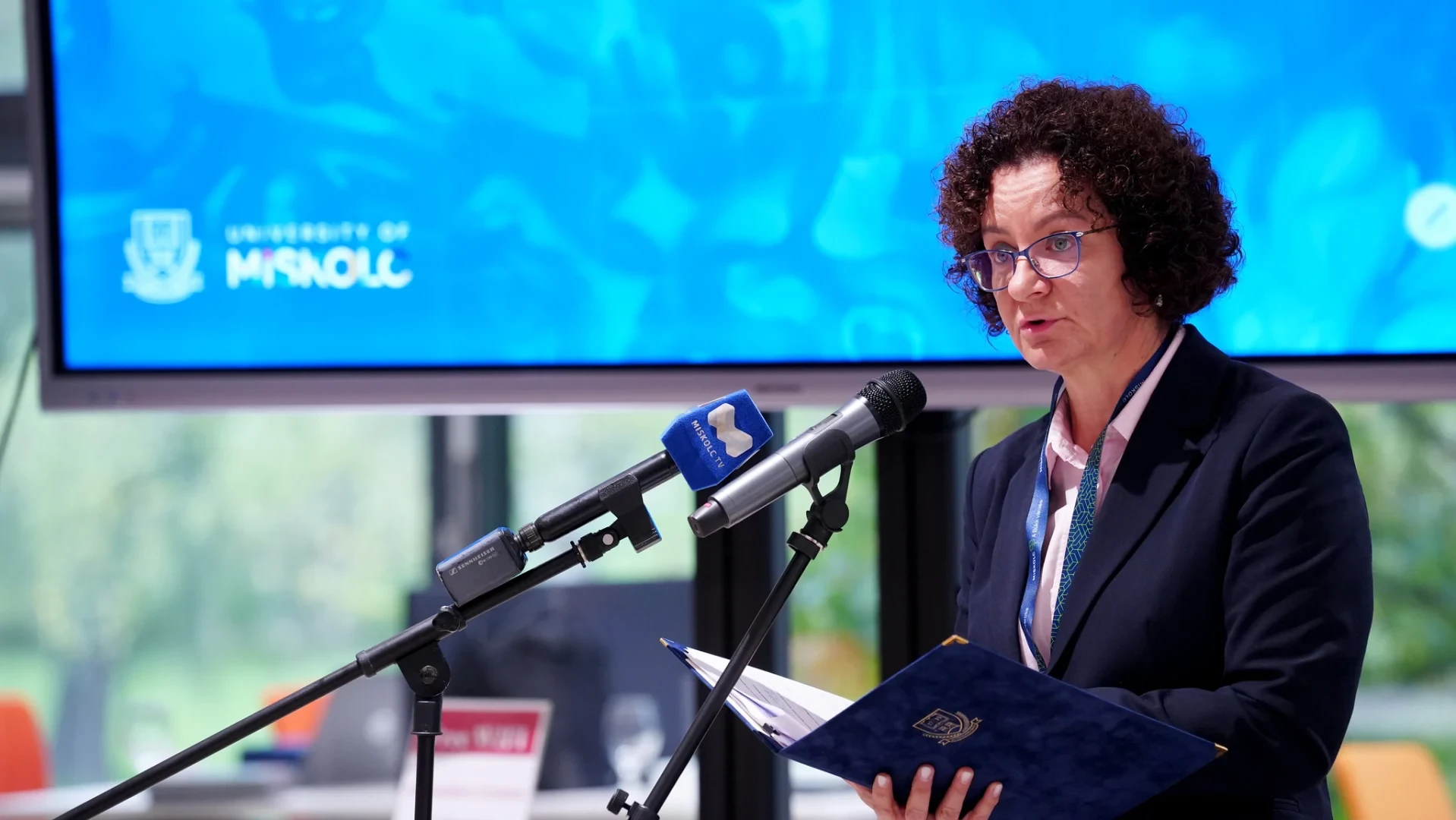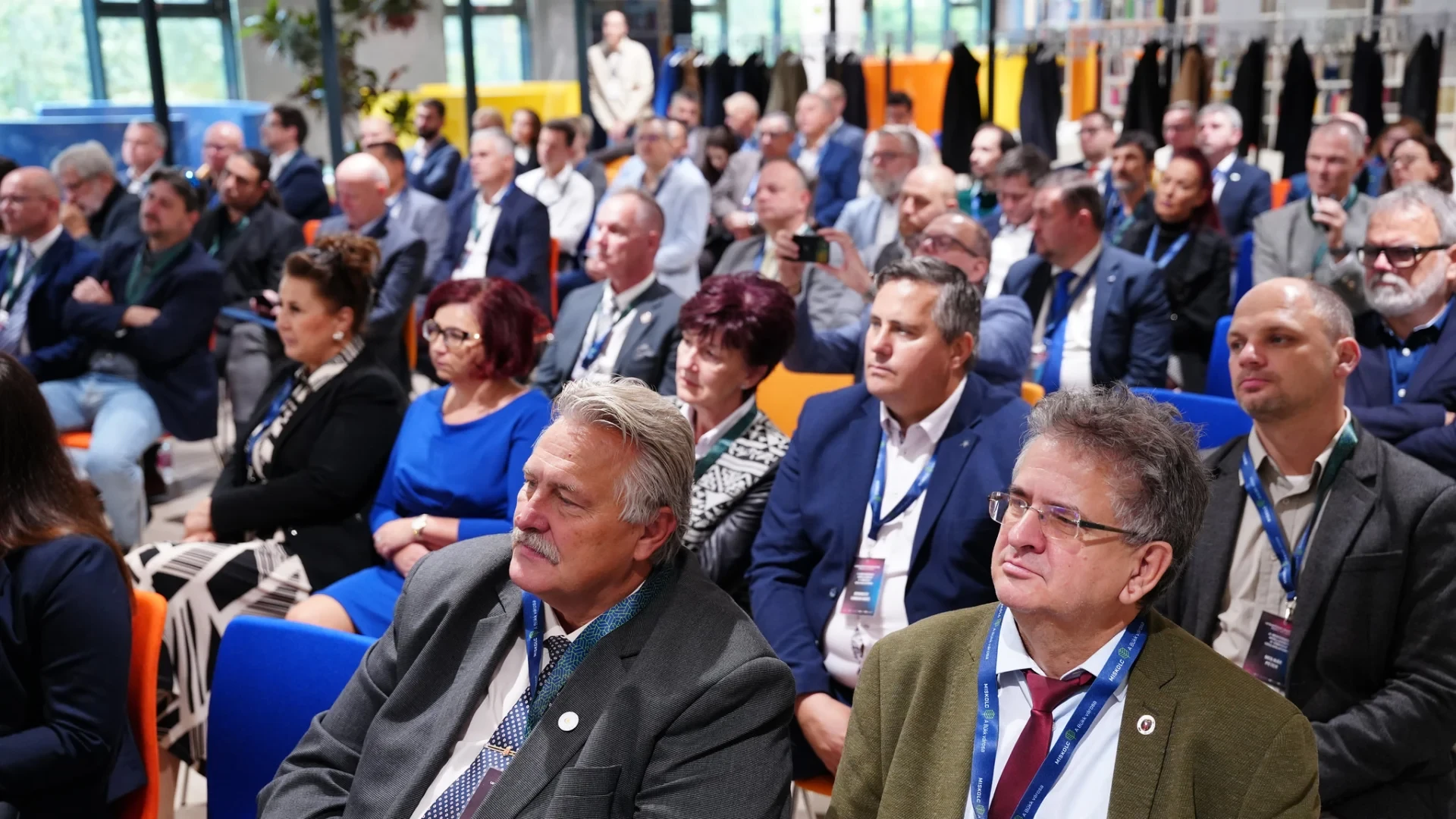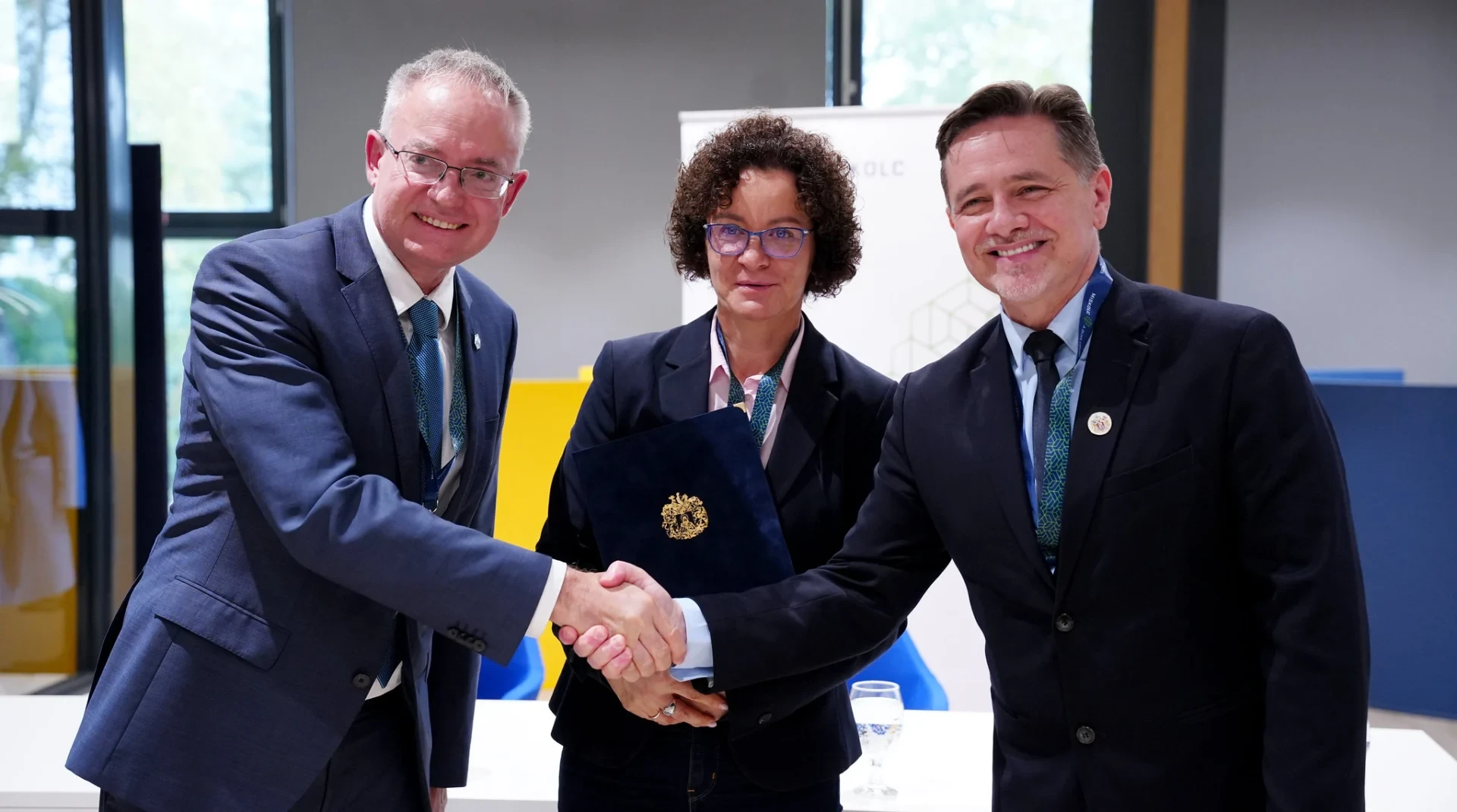The University of Miskolc hosted the signing of the “Artificial Intelligence in the Service of Cities” cooperation agreement and the first national UrbanTech Conference, which showed Hungarian cities, professionals, and representatives of higher education, on how artificial intelligence can support city management, public services, and the quality of community life.
In the opening speech of the event, László Palkovics, the government commissioner responsible for artificial intelligence, spoke about: “When the Hungarian government created the new version of the Artificial Intelligence Strategy, we saw precisely these kinds of tangible innovations implemented at the local level as the key to our national success. We were guided by the goal that AI should not be a distant, intangible technology, but should bring solutions that make everyday life, public services, and the economy more efficient.”

The social role of science
The rector of the University of Miskolc, Prof. Dr. Zita Horváth, spoke about how the region’s knowledge center plays a key role in cooperation. Thanks to its interdisciplinary structure, it is able to involve not only the knowledge base of the technical and IT faculties, but also those of the social sciences, law, economics, humanities, education, and health sciences in joint developments and the operation of the UrbanTech Platform.
The collaboration between the UrbanTech Platform and the University of Miskolc is based on the slogan “Artificial intelligence at the service of cities,” which represents the connection between technological development, social innovation, and a livable urban environment. This partnership is based on the recognition that
the real benefits of artificial intelligence are not found in laboratories or isolated industrial processes, but rather when integrated into everyday urban life,
emphasized the rector.

The legacy of Nobel Prize-winning scientist Dénes Gábor shows that epoch-making discoveries are born when scientific excellence meets social engagement,
said Dr. Ferenc Dietz, president of Dénes Gábor University. “I believe that in the age of artificial intelligence, universities must become hybrid institutions where excellent education and research are intertwined with social innovation. Higher education institutions not only train the workforce of the future, but are also active partners and even drivers in the creation of smart and people-centered cities of the future. In this collaboration, the university offers expertise, research capacity, new technologies, and fresh ideas, while the municipality provides real needs, data, and the possibility of implementation.”
József Tóth-Szántai, mayor of Miskolc, emphasized at the event: “I am convinced that cities are the best testing environment for artificial intelligence. The application of new technologies directly contributes to making our communities more livable, sustainable, and efficient. However, cooperation between the government, universities, businesses, and local governments is essential for this, as only together can we ensure that artificial intelligence truly serves the residents of our cities.”

MI strategy in an urban environment
The UrbanTech Platform, which was presented at the conference, aims to bring cities together to develop and test innovative solutions – from traffic management and energy efficiency
to digital administration. A key announcement in this regard was that the University of Miskolc has officially joined the initiative, thereby strengthening cooperation between cities and the university in the practical application of future technologies.
At the event, the collaborating partners emphasized that AI plays a key role in creating a more livable urban environment, not only as a technological innovation but also as a social innovation. According to the speakers, education and awareness-raising are key pillars of cooperation, as they ensure that all generations of city dwellers can participate in the use of new digital solutions. The UrbanTech initiative is thus closely linked to Artificial Intelligence Strategy 2.0, in which basic and primary education plays a central role, enabling new technologies to be not only introduced but also truly embedded in everyday urban life.
Experts on the subject shared their experiences on this topic during the roundtable discussion that concluded the conference. The discussion highlighted that education, jobs, social acceptance, and cost-effectiveness are all important factors in the success of urban AI solutions.
